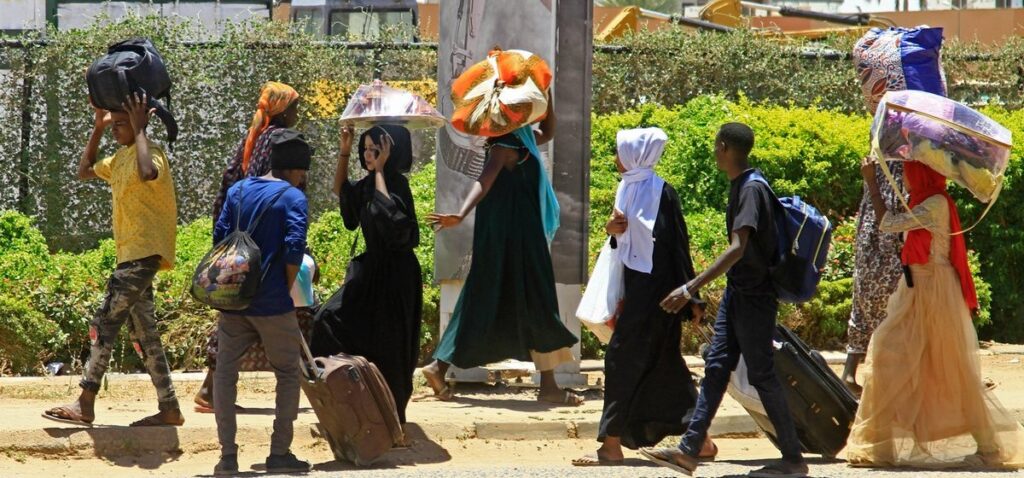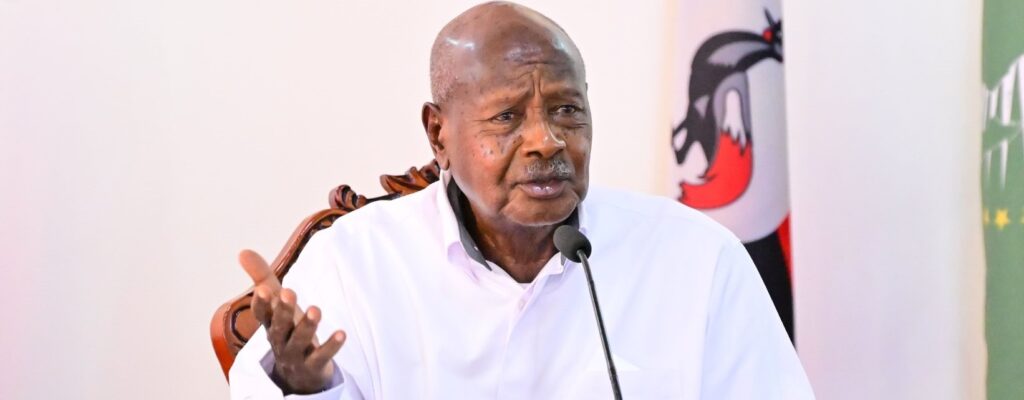Ugandan President Yoweri Kaguta Museveni has blamed the conflict in Sudan on ‘the ideological mistakes by the country’s leaders’.
Museveni, who is the current Chairperson of the African Union Peace and Security Council, expressed the sentiments on Friday when he chaired a virtual meeting of the Council’s Heads of State and Government from Uganda’s State Lodge, Nakasero.
The leaders explored ways to enhance coordinated efforts among regional and international partners to achieve peace and stability for the Sudanese people.
“It is now 70 years since our neighboring country, has been in war more or less continuously and this has been because of some mistakes which, we many times, talk about with the Sudanese leaders. The first mistake was the politics of identity of Africans Vs Arabs or vice versa. Identity of religions; Muslims Vs Christians, and this is the problem also in other parts of Africa. Even in Uganda here, we had the same problem; people who were pushing the politics of identity instead of the politics of interest of the people,” he said.
Museveni highlighted the other mistake as the use of force and arms instead of dialogue.
“When you use force, you deploy unprepared people who are not disciplined and hold a wrong ideology. That is how you get this catastrophe, the one you are seeing. A war need not affect the whole population unless there is something wrong with the managers of that conflict,” he noted.

The Chairperson of the AU Commission, Moussa Faki Mahamat, informed the meeting that leaders must do all it takes to ensure a ceasefire in Sudan.
“The African Union, with the implementation of the decisions of your council, has been engaging all those in the spectrum of the conflict to facilitate the peace process,” he said.
“The protection of human rights and the International Humanitarian law will only be possible if national reconciliation is realized. It is for this reason I call for the strengthening of the international solidarity to ensure the democratic transition in Sudan, to avoid all sorts of crises that could create further chaos in the country and the region.”
Mahamat commended President Museveni for his efforts in facilitating the peace process in Sudan.
The IGAD Executive Secretary, Dr Workneh Gebeyehu, also briefed the meeting on the need for coordinated peace efforts among the partners and friends of Sudan.
“We must prioritize the Sudanese people who have suffered immensely. Igad remains committed to finding a path to peace for our Sudanese brothers and sisters, believing that despite the tragic year of war, there is still hope for a peaceful resolution,” he said.
The Chairperson of the African Union High Level Panel on Sudan, Dr. Mohamed Ibn Chambas, said the conflict in Sudan was worse than those in Ukraine and Gaza. He emphasized that the situation had reached a degree of urgency that required bold action by the Peace and Security Council.
The leaders demanded that the Rapid Support Forces (RSF) and the Sudanese Armed Forces (SAF) immediately stop the fighting. They also emphasized that there were no viable and sustainable military solutions to the conflict.
The leaders further emphasized the need to ensure the protection of the civilians and requested the AU Commission and the African Commission on Human and People’s Rights to investigate and make recommendations to the Peace and Security Council the measures to be taken for the protection of the civilians.
The meeting was also addressed by a representative of the UN Secretary-General Antonio Guterres.




